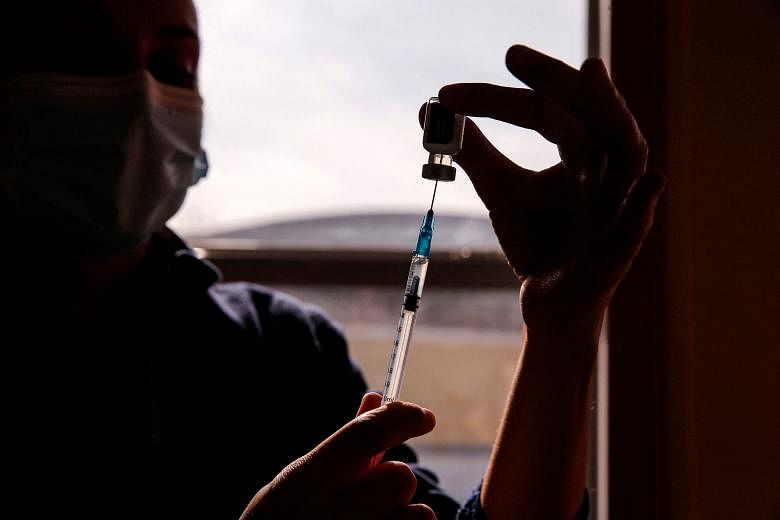LONDON (REUTERS) - A longer gap between doses of Pfizer's Covid-19 vaccine leads to higher overall antibody levels than a shorter gap, a British study found on Friday (July 23), but there is a sharp drop in antibody levels after the first dose.
The study might help inform vaccination strategies against the Delta variant, against which a first dose of Covid-19 vaccine has reduced effectiveness even though two doses are still protective.
"For the longer dosing interval... neutralising antibody levels against the Delta variant were poorly induced after a single dose and not maintained during the interval before the second dose," the authors of the study, which is being led by the University of Oxford, said.
"Following two vaccine doses, neutralising antibody levels were twice as high after the longer dosing interval compared with the shorter dosing interval."
Neutralising antibodies are thought to play an important role in immunity against the coronavirus, but not the whole picture, with T cells also playing a part.
The study found overall T-cell levels were 1.6 times lower with a long gap compared with the short dosing interval of 3-4 weeks, but that a higher proportion were "helper" T-cells, which support long-term immune memory, with the long gap.
"While we tend to emphasise neutralising antibodies as a measure of the immune response... cellular immunity, which is harder to measure, is also likely to be very important," said Peter English, former chair of the BMA Public Health Medicine Committee.
The findings, issued as a pre-print, support the view that while a second dose is needed to provide full protection against the Delta variant, delaying that dose might provide more durable immunity, even if that comes at the cost of protection in the short-term.
Last December, Britain extended the interval between vaccine doses to 12 weeks, although Pfizer warned there was no evidence to support a move away from a three-week gap.
Britain now recommends an eight-week gap between vaccine doses to give more people high protection against the Delta variant more quickly, while still maximising immune responses in the longer term.
"I think eight weeks is about the sweet spot," Ms Susanna Dunachie, joint chief investigator on the study, told reporters.











